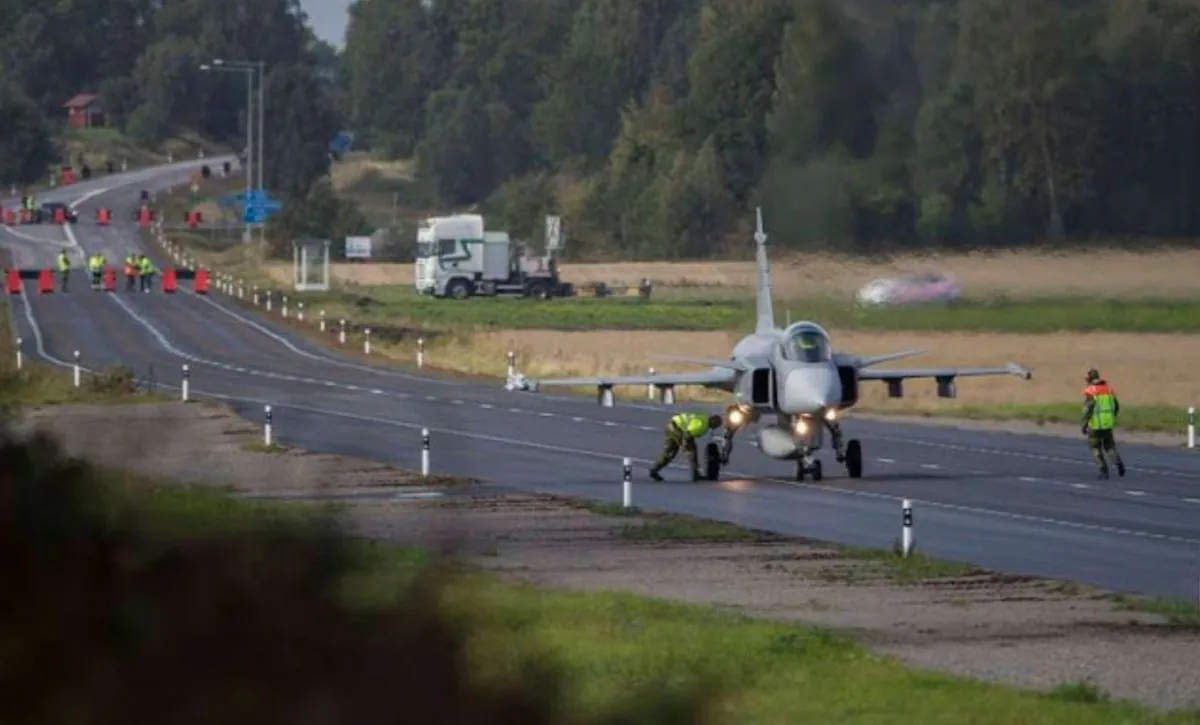On September 18, 2024, a flight carrying Maria Malmer Stenergard and Gunnar Strommer, Sweden's Foreign and Justice Ministers respectively, was forced to return to Stockholm due to technical difficulties. The aircraft was en route to Turkey for a significant meeting regarding Sweden's NATO membership bid.
The Swedish Foreign Ministry assured that the crew and passengers were not in immediate danger. However, the incident necessitated the postponement of a crucial security meeting with Turkish officials. This meeting was intended to be the first discussion addressing a security pact, which was instrumental in securing Turkey's approval for Sweden's NATO membership application.
Sweden's journey towards NATO membership has been complex and historically significant. The country officially applied to join NATO on May 18, 2022, ending over 200 years of military non-alignment. This decision, alongside Finland's similar application, marked a substantial shift in Nordic security policy.
Turkey, NATO's second-largest military power after the United States, initially opposed Sweden's membership. Ankara expressed concerns about Stockholm's stance on Kurdish militant groups and an arms embargo. However, after more than a year of negotiations, Turkey approved Sweden's bid in January 2024.
The postponed meeting was set to address the security pact that paved the way for Turkey's approval. This development highlights the ongoing diplomatic efforts required even after formal approval processes.
Sweden's potential accession to NATO represents a significant alteration in Northern Europe's security landscape. The country has been gradually increasing its military preparedness in recent years, reintroducing conscription in 2017 and boosting defense spending.
Despite its long-standing policy of neutrality dating back to 1814, Sweden has been actively participating in NATO-led operations and exercises as a partner country since the 1990s. The country's strong defense industry and status as a major arms exporter further underscore its potential contributions to the alliance.
The Swedish parliament's vote in favor of joining NATO in April 2023 was a crucial step in this process. However, as the aborted flight demonstrates, the path to full membership involves ongoing diplomatic engagements and unforeseen challenges.
As Sweden moves closer to NATO membership, it continues to balance its historical stance of "armed neutrality" with the new realities of European security. The rescheduling of this important meeting will be closely watched by international observers as it represents another step in Sweden's evolving defense policy.
[[Swedish Foreign Ministry Statement]]
"A new date will be set for the meeting. The crew and passengers were not in any immediate danger."
This incident, while a temporary setback, is unlikely to significantly impact Sweden's progress towards NATO membership. It does, however, underscore the complex and often unpredictable nature of international diplomacy and security negotiations.
